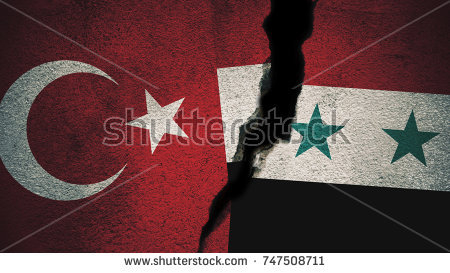Turkey's energy strategy under pressure : domestic bets and regional constraints

Practical information
Ifri"s Contemporary Turkey Programme and Ifri"s Center for Energy organize a joined seminar with Dorothée Schmid, Research Fellow, Head of the Contemporary Turkey Programme at Ifri, Mithat Rende, Ambassador, Director General for Multilateral Economic Affairs, Turkish Ministry of Foreign Affairs, Sohbet Karbuz, Director of Hydrocarbons, Observatoire Méditerranée de l'Énergie (Ome), Denis Simonneau, Diplomatic Adviser, Member of the Executive Committee in charge of European and International Relations, GDF Suez, Ozan Acar, Economist, Economy Policy Research Foundation of Turkey (TEPAV). Chaired by Cécile Maisonneuve, Director of Ifri"s Center for Energy.
The Middle East energy equation is rapidly evolving in view of different parameters. Among others, Iraq"s massive hydrocarbon resources are being developed, significant offshore gas discoveries have been made in the Levantine basin, Iran ability to export and maintain its production levels is suffering from international sanctions, and, last but not least, Arab political transitions are seriously impacting traditional Mediterranean producers.
In such an uncertain regional context, Turkey has to meet the explosion of its energy demand and ensure its energy interests.
According to the International Energy Agency, Turkey"s energy consumption is indeed expected to double by 2020. The country ranks second worldwide in terms of gas and electricity demand growth, just behind China. Turkey therefore has to secure its supplies, rationalize its consumption and promote the development of its domestic resources. These objectives cannot be achieved without massive investments and a clear policy outlook.
On the other hand, reforms to come will also be crucial as regard Turkey"s ability to maintain and develop its strategic role as an energy hub between producing countries of the Caspian Sea, the Middle East, Russia and the European markets. This questions the articulation of Turkey"s foreign policy with its energy interests.
The seminar will provide insights on energy issues in Turkey, especially in view of recent political and geopolitical developments both in Turkey itself and in the neighbouring region.




